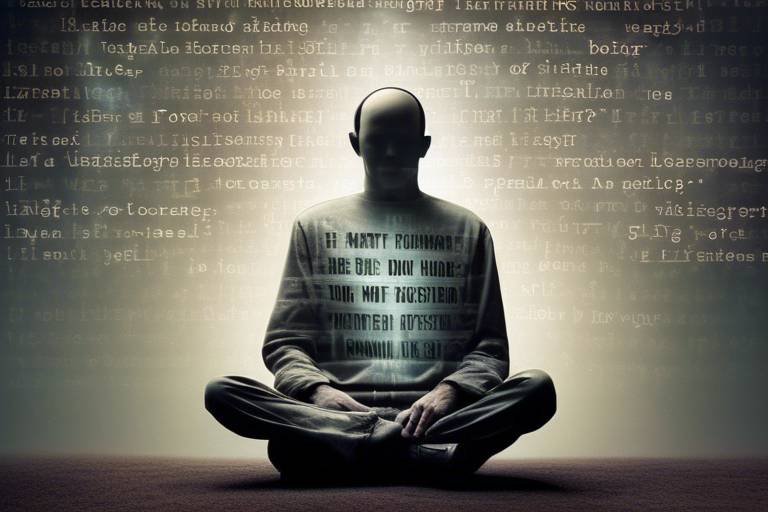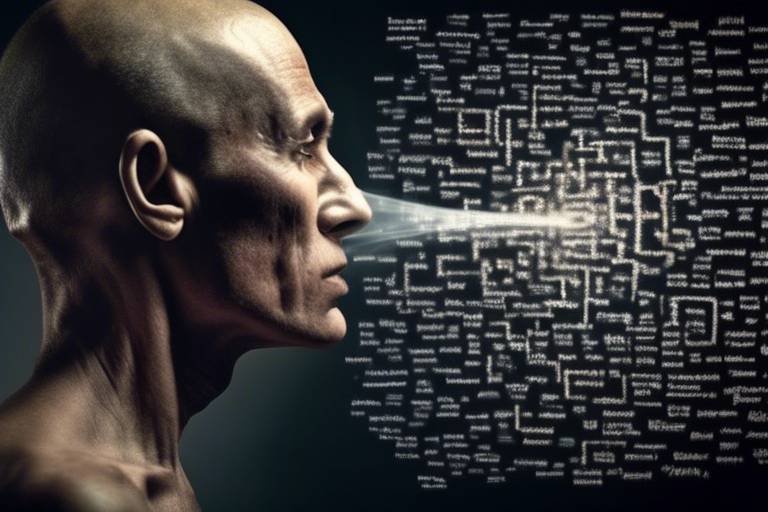Is Consciousness the Foundation of Reality?
Have you ever pondered the nature of reality? It's a question that has intrigued philosophers, scientists, and curious minds alike for centuries. The relationship between consciousness and reality is not just a philosophical debate; it influences how we perceive our existence and the universe around us. What if consciousness is not merely a byproduct of brain activity but rather the very foundation upon which reality is built? This article dives deep into this fascinating inquiry, exploring various perspectives and the implications they hold for our understanding of life itself.
To begin with, let's consider what we mean by consciousness. It’s not just about being awake or aware; consciousness encompasses our thoughts, emotions, perceptions, and experiences. It shapes our reality through the lens of our individual experiences. Imagine consciousness as a unique filter through which we view the world—each person has a different lens, resulting in a diverse range of perceptions and interpretations. This leads us to ask: if consciousness varies so greatly among individuals, can there be a singular reality that everyone experiences in the same way?
As we delve deeper, we encounter intriguing philosophical perspectives that challenge our understanding of consciousness. From dualism, which posits a separation between mind and body, to materialism, which argues that consciousness arises solely from physical processes, these theories offer varying interpretations. For instance, dualists like René Descartes believed in a distinct separation between mental and physical realms. This raises questions about how these two interact and influence our understanding of reality. On the flip side, contemporary materialists contend that everything about consciousness can be explained through neuroscience, suggesting that our reality is fundamentally rooted in the material world.
But what if there’s more to the story? Enter panpsychism, a theory proposing that consciousness is a fundamental feature of all matter. This perspective challenges conventional views and suggests that everything, from a grain of sand to a human being, possesses some form of consciousness. Imagine a world where even the smallest particles contribute to the tapestry of reality. This interconnectedness invites us to reconsider our place in the universe and the nature of existence itself.
Scientific investigations into consciousness have also gained momentum, with neuroscientists and psychologists working tirelessly to uncover its mechanisms. Studies reveal fascinating correlations between brain activity and conscious experience, prompting discussions about the implications for our understanding of reality. For instance, when we experience joy or pain, specific brain regions light up, suggesting that our emotional states are closely tied to our perceptions of reality. But does this mean that our reality is merely a product of our brain's wiring? Or does consciousness play a more active role in shaping the world around us?
Some theories even venture into the realm of quantum mechanics, proposing that consciousness may influence quantum processes. This idea suggests a profound link between consciousness and the fundamental nature of reality, leading to questions about the very fabric of existence. Are we mere observers of a predetermined universe, or do our conscious choices actively shape the reality we experience? These questions are not just theoretical; they have real implications for how we perceive free will and our role in the universe.
The interplay between consciousness and reality raises significant questions about free will and our autonomy. If consciousness is indeed the foundation of reality, what does that mean for our decision-making processes? Are we truly free to choose our paths, or are our choices predetermined by our consciousness? This dilemma challenges our understanding of autonomy and impacts how we perceive our actions within reality.
Moreover, consciousness profoundly shapes our perception of reality. Our beliefs, experiences, and emotions influence how we interpret the world around us. For instance, two people witnessing the same event may have entirely different interpretations based on their conscious experiences. This raises the question: if reality is subjective, can we ever truly understand it in an objective sense? The implications of this idea are vast, inviting deeper exploration into the nature of existence and our understanding of life.
- What is consciousness? Consciousness refers to the state of being aware of and able to think and perceive one's surroundings, thoughts, and feelings.
- How does consciousness relate to reality? Consciousness influences how we perceive and interpret reality, suggesting that our understanding of existence may be subjective.
- What are the main philosophical theories about consciousness? Key theories include dualism, materialism, and panpsychism, each offering unique perspectives on the relationship between consciousness and reality.
- Can consciousness affect physical reality? Some theories, particularly in quantum mechanics, suggest that consciousness may play a role in influencing quantum processes, hinting at a deeper connection between the two.

The Nature of Consciousness
Understanding consciousness is like trying to catch smoke with your bare hands—elusive and complex. At its core, consciousness refers to our awareness of ourselves and the world around us. It encompasses a wide range of experiences, from the mundane to the profound, and raises questions that philosophers and scientists have grappled with for centuries. What exactly is consciousness? Is it merely a byproduct of brain activity, or is it something more? These questions fuel ongoing debates that shape our perception of reality.
To dive deeper, let's explore some of the key characteristics of consciousness:
- Subjectivity: Each person's experience of consciousness is unique, influenced by individual perceptions, emotions, and thoughts.
- Intentionality: Consciousness is often directed toward something, whether it be a thought, an object, or an experience, highlighting our ability to focus and engage with the world.
- Unity: Despite the multitude of experiences we have, consciousness tends to feel like a single, cohesive experience, rather than a series of disconnected moments.
These characteristics suggest that consciousness is not just a passive state but an active engagement with reality. The ongoing debates about its essence and origin are essential for understanding how we interpret our existence. Some argue that consciousness emerges from complex neural interactions, while others believe it could be a fundamental aspect of the universe itself.
Philosophers have long pondered the nature of consciousness, leading to various theories that attempt to explain its origins and significance. For instance, the question of whether consciousness is a product of the brain's physical processes or if it exists independently has sparked intense discussion. This leads us to consider whether consciousness is merely a byproduct of evolution or if it serves a more profound purpose in our understanding of reality.
In recent years, scientific inquiries into consciousness have gained momentum, particularly in the fields of neuroscience and psychology. Researchers are employing advanced technologies to map brain activity and correlate it with conscious experiences, offering insights into how our minds work. This intersection of philosophy and science invites us to reconsider the very fabric of reality. Could consciousness be the lens through which we perceive everything, shaping our understanding of existence itself?
As we continue to explore the nature of consciousness, it becomes evident that it is not just a philosophical puzzle but a fundamental aspect of our lives. It influences our thoughts, decisions, and interactions, ultimately shaping our reality. The more we understand consciousness, the closer we come to unraveling the mysteries of our existence.
- What is consciousness? Consciousness is our awareness of ourselves and our surroundings, encompassing thoughts, feelings, and perceptions.
- Is consciousness the same as the brain? While consciousness is closely linked to brain activity, the nature of their relationship is still a subject of debate among scientists and philosophers.
- Can consciousness exist without the brain? Some theories suggest that consciousness may be a fundamental aspect of the universe, independent of physical processes.
- How does consciousness affect reality? Consciousness shapes our perceptions and interpretations of the world, influencing how we interact with our environment.

Philosophical Perspectives
The exploration of consciousness is not merely a scientific endeavor; it is deeply rooted in philosophical inquiry. Different schools of thought have emerged over centuries, each attempting to unravel the complexities of consciousness and its relationship with reality. From ancient philosophers to modern thinkers, the discourse surrounding consciousness has evolved, giving rise to various interpretations that challenge our understanding of existence. This section delves into some of the most significant philosophical perspectives that shape our views on consciousness.
One of the most prominent debates in this realm is between dualism and materialism. Dualists, like René Descartes, argue that consciousness exists independently of the physical world. They posit that the mind and body are two distinct entities that interact in ways we are still trying to comprehend. On the other hand, materialists assert that consciousness is a product of physical processes within the brain. This perspective suggests that everything, including our thoughts and feelings, can ultimately be explained through the lens of biology and chemistry.
To further understand this dichotomy, consider the following table that summarizes the key differences:
| Aspect | Dualism | Materialism |
|---|---|---|
| Nature of Consciousness | Separate from physical reality | Arises from physical processes |
| Philosophical Roots | René Descartes, Plato | Modern neuroscience, empiricism |
| Implications for Free Will | Supports the notion of free will | Challenges traditional views of autonomy |
The contrast between these two perspectives raises profound questions about the nature of our existence. For instance, if consciousness is separate from the physical world, how do we explain the intricate ways in which our thoughts influence our actions? Conversely, if our consciousness is merely a byproduct of brain activity, what does that mean for our sense of self and the choices we make?
René Descartes, often regarded as the father of modern philosophy, introduced the concept of substance dualism. He famously declared, "Cogito, ergo sum" ("I think, therefore I am"), emphasizing the certainty of one’s existence through the act of thinking. Descartes argued that the mind is a non-physical substance that interacts with the body, leading to a myriad of questions about the mechanisms of this interaction. How does a non-material mind influence a physical body? This question remains a central puzzle in philosophy and cognitive science.
In contrast, contemporary materialism presents a more scientifically grounded view. Modern thinkers suggest that consciousness arises from complex biological processes in the brain. This perspective aligns with advancements in neuroscience, which have illuminated the brain's role in shaping our conscious experiences. As we learn more about neural pathways and brain activity, the materialist view posits that consciousness is not a mystical phenomenon but rather a natural outcome of biological evolution. This raises intriguing implications: if consciousness is a product of physical processes, what does that say about our free will and the essence of our decisions?
As the debate continues, panpsychism has emerged as an intriguing alternative. This philosophical perspective posits that consciousness is a fundamental feature of all matter. Unlike dualists and materialists, panpsychists argue that everything, from rocks to trees to humans, possesses some form of consciousness. This idea challenges traditional views and invites us to consider a more interconnected reality, where consciousness is not exclusive to complex organisms but is a pervasive aspect of the universe.
In summary, the philosophical perspectives on consciousness offer a rich tapestry of ideas that challenge our understanding of reality. Whether one aligns with dualism, materialism, or panpsychism, the discourse invites us to ponder profound questions about our existence, the nature of our thoughts, and the very fabric of reality itself.
- What is dualism? Dualism is the belief that the mind and body are distinct entities that interact with each other.
- How does materialism explain consciousness? Materialism posits that consciousness arises from physical processes in the brain.
- What is panpsychism? Panpsychism is the view that consciousness is a fundamental feature of all matter, suggesting that even simple entities possess some form of consciousness.

Dualism vs. Materialism
When we dive into the debate between dualism and materialism, we're stepping into a fascinating battleground of ideas that have shaped our understanding of consciousness and reality for centuries. At its core, dualism asserts that the mind and body are distinct entities, each with its own essence. This perspective, famously championed by René Descartes, suggests that our mental experiences are separate from the physical processes occurring in our brains. Imagine your mind as a ghostly conductor, orchestrating the symphony of your bodily actions without being physically present in the orchestra itself. This separation raises profound questions: How do these two realms interact? Can something immaterial influence the physical world? These inquiries not only challenge our understanding of consciousness but also our grasp of reality itself.
On the flip side, we have materialism, which posits that everything about consciousness can be explained in terms of physical processes. In this view, our thoughts, feelings, and experiences are merely the byproducts of neuronal activity in the brain. Picture your brain as a complex computer, processing inputs and outputs, where every thought is just a series of electrical impulses and chemical reactions. This perspective leads to a more straightforward understanding of reality, where everything can be measured, observed, and understood through scientific inquiry. Yet, it also raises a critical question: If consciousness is merely a product of physical processes, what happens to the notion of free will? Are we just puppets dancing to the strings of our biological makeup?
The contrast between these two perspectives is not just academic; it has real implications for how we perceive ourselves and our place in the universe. For instance, if dualism holds true, it opens up the possibility of life beyond physical existence, a realm where the mind can exist independently of the body. This notion can be both comforting and unsettling, depending on one's beliefs about the afterlife and the nature of existence. Meanwhile, materialism, while grounded in scientific understanding, can lead to a more nihilistic view if we believe our consciousness is merely a fleeting product of biological processes.
To illustrate the differences between dualism and materialism, consider the following table:
| Aspect | Dualism | Materialism |
|---|---|---|
| Definition | Mind and body are separate entities. | Consciousness arises from physical processes. |
| Key Proponent | René Descartes | Modern neuroscientists |
| View on Free Will | Supports the idea of free will. | Questions the existence of free will. |
| Implications for Existence | Possibility of life after death. | Life is a product of biological processes. |
Ultimately, the dualism vs. materialism debate invites us to reflect on our own beliefs about consciousness and reality. Are we merely sophisticated machines, or is there something more profound at play? This discussion is not just philosophical; it resonates deeply with our everyday experiences and how we navigate the complexities of life. As we continue to explore these concepts, we may find that the answers are not as clear-cut as we once thought, leading us to a richer understanding of what it means to be conscious beings in a vast universe.
- What is dualism? Dualism is the belief that the mind and body are separate entities, each with their own distinct properties.
- What does materialism propose? Materialism posits that consciousness arises from physical processes in the brain, emphasizing a scientific approach to understanding reality.
- Can dualism and materialism coexist? While they offer contrasting views, some argue that elements of both perspectives can coexist, leading to a more nuanced understanding of consciousness.
- How does this debate affect our understanding of free will? Dualism tends to support the idea of free will, while materialism raises questions about autonomy by suggesting our actions are determined by physical processes.
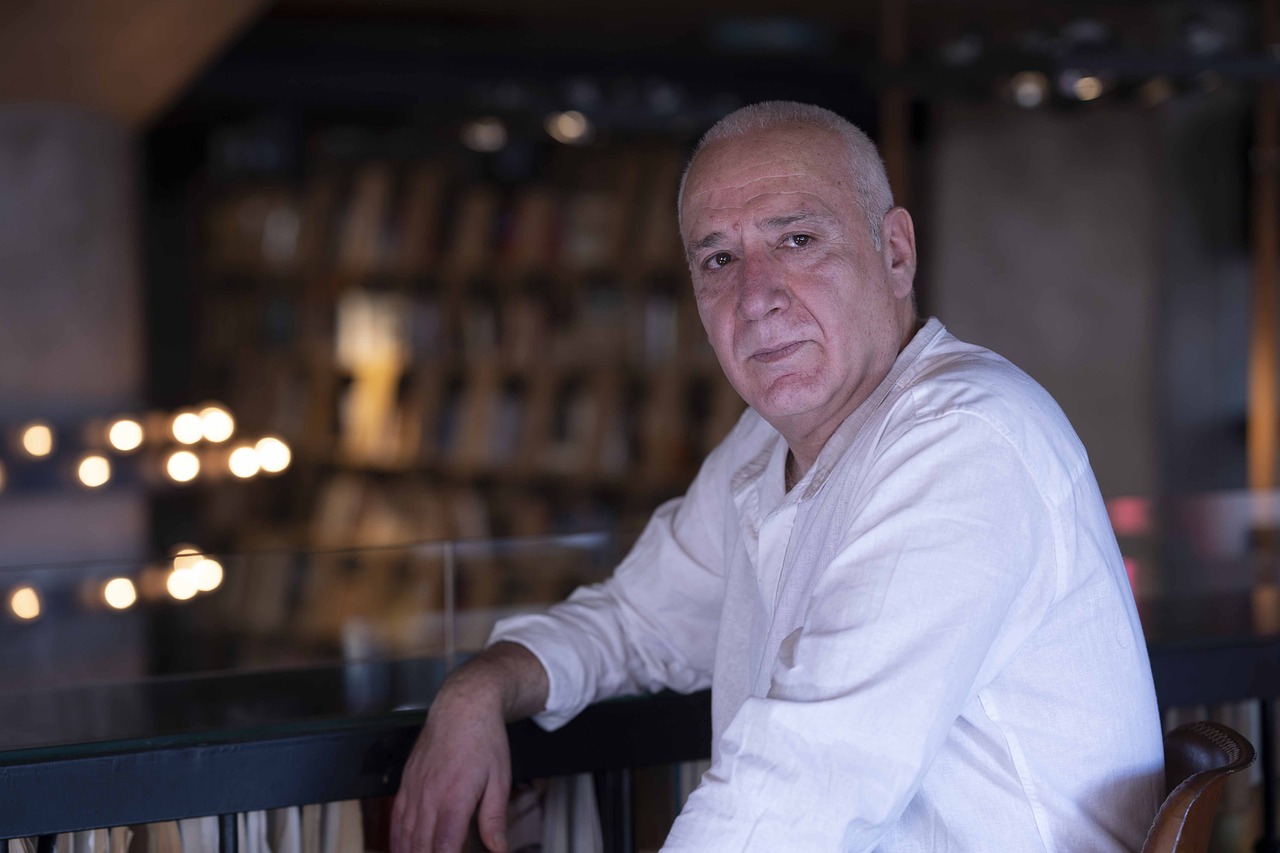
Descartes and Substance Dualism
René Descartes, a prominent figure in the realm of philosophy, introduced the concept of substance dualism, which posits that the mind and body are fundamentally distinct entities. This idea revolutionized our understanding of consciousness and its relationship to reality. According to Descartes, the mind is a non-physical substance, whereas the body is physical, leading to the intriguing question: how can these two interact? This dualistic view suggests that our thoughts, emotions, and consciousness exist independently of the physical world, raising profound implications for our understanding of existence itself.
Descartes famously stated, “Cogito, ergo sum” or “I think, therefore I am,” which encapsulates his belief that the act of thinking is proof of one’s existence. This assertion highlights the primacy of consciousness in defining reality. If we accept that the mind exists separately from the body, we are compelled to reconsider how we perceive our surroundings and ourselves. This separation raises important questions about the nature of reality: Is it merely a construct of our minds, or does it exist independently of our perceptions? Descartes’ dualism invites us to explore these queries further.
Moreover, Descartes' ideas have sparked ongoing debates among philosophers and scientists alike. The interaction problem remains a key challenge: if the mind and body are distinct, how do they influence one another? This dilemma has led to various interpretations and theories attempting to bridge the gap between the mental and the physical. For instance, some argue that the brain acts as a mediator, translating mental experiences into physical actions, while others contend that consciousness may affect physical processes in ways we do not yet fully understand.
To illustrate the differences between dualism and other philosophical perspectives, consider the following table:
| Philosophical Perspective | Key Features |
|---|---|
| Substance Dualism | Minds and bodies are separate; consciousness exists independently of the physical. |
| Materialism | Consciousness arises from physical processes in the brain; everything is rooted in the material. |
| Functionalism | Focuses on mental states as functions of physical systems, not necessarily tied to a specific substance. |
| Panpsychism | Consciousness is a fundamental feature of all matter, suggesting a more interconnected reality. |
In conclusion, Descartes' substance dualism has had a lasting impact on philosophical thought and our understanding of consciousness. By asserting the independence of the mind from the body, he opened the door to a myriad of questions about the nature of reality, consciousness, and existence itself. As we continue to explore these concepts, it becomes increasingly clear that our understanding of consciousness is not just a philosophical endeavor but a crucial aspect of understanding what it means to be human.
- What is substance dualism? Substance dualism is the philosophical view that the mind and body are distinct and separate entities.
- How does Descartes' dualism impact our understanding of consciousness? It suggests that consciousness exists independently of physical processes, prompting further inquiry into how they interact.
- What challenges does substance dualism face? The primary challenge is explaining how the non-physical mind interacts with the physical body, known as the interaction problem.
- Are there alternatives to dualism? Yes, materialism, functionalism, and panpsychism are some of the alternatives that provide different perspectives on consciousness and reality.
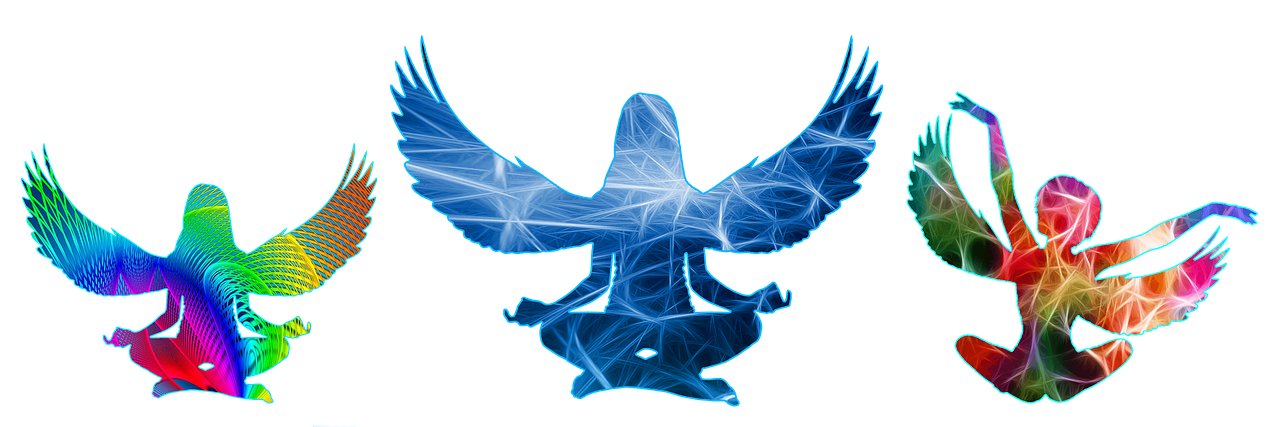
Contemporary Materialism
In the realm of philosophy, stands as a formidable perspective that seeks to explain consciousness through the lens of physical processes. This viewpoint posits that everything we experience, including our thoughts, emotions, and perceptions, arises from the intricate workings of the brain. It’s a bit like saying that the mind is a complex software program running on the hardware of the brain. Just as a computer's performance is dictated by its components, our consciousness is seen as emerging from the biological and chemical interactions within our neural networks.
One of the key tenets of contemporary materialism is the idea that consciousness is not a separate entity but rather a product of physical phenomena. This perspective aligns with the scientific method, relying on empirical evidence to support claims about the nature of reality. For instance, neuroscientific research has made significant strides in mapping brain activity to conscious experience. Techniques such as functional magnetic resonance imaging (fMRI) allow scientists to observe which areas of the brain are active during various mental tasks, revealing a direct correlation between brain function and conscious thought.
However, this view is not without its challenges. Critics argue that materialism fails to account for the subjective quality of experiences, often referred to as qualia. These are the personal, internal experiences that accompany our perceptions—like the taste of chocolate or the color red. While contemporary materialists assert that these experiences can ultimately be explained by brain activity, the question remains: can the richness of our inner lives be fully captured by physical processes alone?
To illustrate the contrast between contemporary materialism and other perspectives, consider the following table:
| Aspect | Contemporary Materialism | Dualism | Panpsychism |
|---|---|---|---|
| Nature of Consciousness | Emerges from physical processes | Separate from the physical | Inherent in all matter |
| Key Proponents | Daniel Dennett, Patricia Churchland | René Descartes | Galen Strawson |
| Research Approach | Empirical, neuroscience-based | Philosophical, metaphysical | Interdisciplinary, integrating philosophy and science |
As we delve deeper into the implications of contemporary materialism, it becomes evident that this view not only shapes our understanding of consciousness but also influences our perception of reality itself. If consciousness is merely a byproduct of brain activity, what does that mean for our notions of free will and personal identity? Are we simply biological machines, or is there something more to our existence? These questions invite us to explore the boundaries of science and philosophy, challenging us to reconsider what it means to be conscious beings in a material world.
In conclusion, contemporary materialism offers a compelling framework for understanding the relationship between consciousness and reality, yet it opens up a Pandora's box of questions that continue to intrigue and perplex thinkers across disciplines. As we seek answers, we find ourselves at the intersection of science, philosophy, and the profound mystery of existence.
- What is contemporary materialism? It is a philosophical perspective that argues consciousness arises from physical processes in the brain.
- How does contemporary materialism relate to neuroscience? Neuroscience provides empirical evidence for the claims of contemporary materialism by mapping brain activity to conscious experiences.
- What are qualia? Qualia are the subjective, individual experiences that accompany our perceptions, which contemporary materialism struggles to fully explain.
- Who are some key proponents of contemporary materialism? Notable figures include Daniel Dennett and Patricia Churchland.
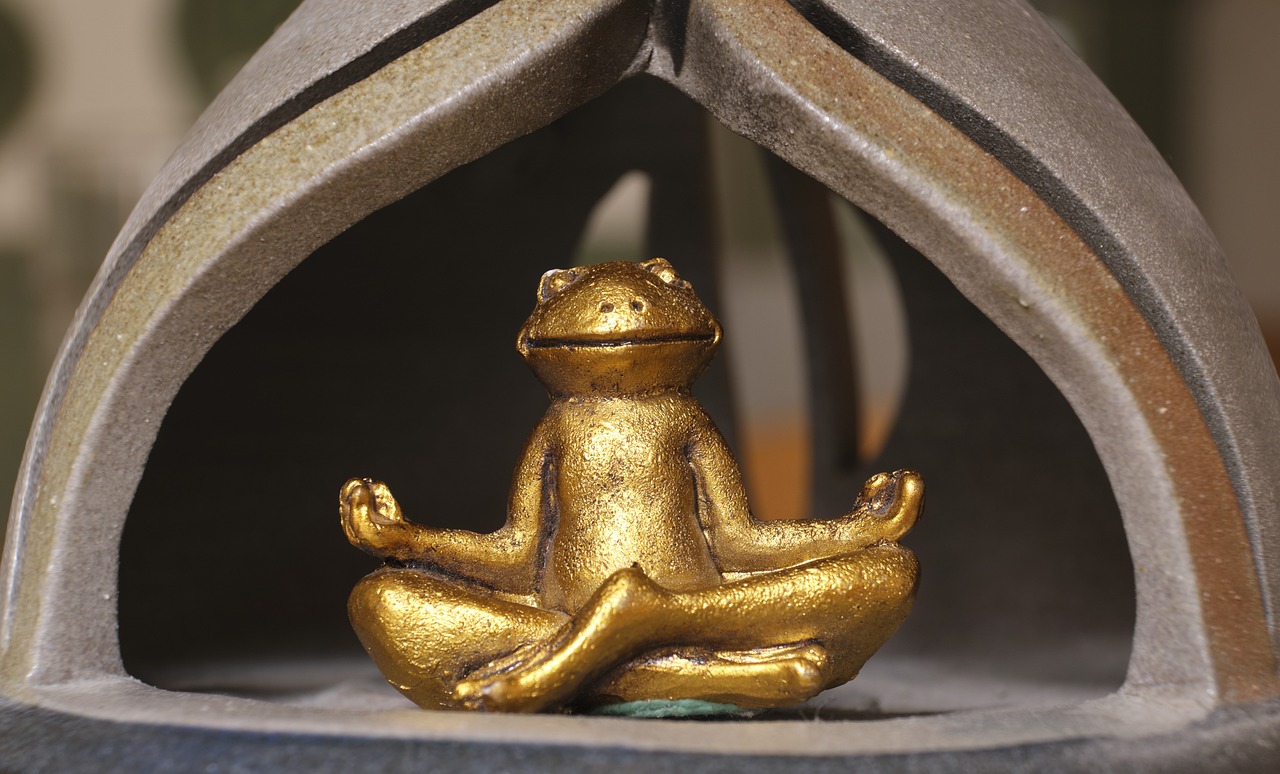
Panpsychism as an Alternative
When diving into the depths of consciousness, one intriguing perspective that emerges is panpsychism. This theory suggests that consciousness is not just a phenomenon exclusive to humans or higher animals, but rather a fundamental quality inherent in all matter. Imagine for a moment that everything around us—rocks, trees, and even atoms—has some form of consciousness. It’s a radical departure from traditional views, but it opens up a fascinating dialogue about the interconnectedness of existence.
At its core, panpsychism challenges the notion that consciousness arises solely from complex biological processes. Instead, it posits that consciousness exists in varying degrees across the universe. This viewpoint invites us to reconsider our understanding of reality. If consciousness is a property of all matter, then what does that imply about our interactions with the world? Are we merely observers, or do we share an intrinsic bond with the very fabric of existence?
One of the most compelling aspects of panpsychism is its ability to bridge the gap between the physical and the mental. Traditional dualism separates mind from matter, while materialism often dismisses the subjective qualities of experience. Panpsychism, however, offers a middle ground. It suggests that consciousness is a fundamental aspect of reality, much like gravity or electromagnetism. This perspective not only enriches our understanding of consciousness but also enhances our appreciation of the universe as a whole.
To illustrate the concept further, consider the following table that outlines the distinctions between panpsychism, dualism, and materialism:
| Theory | View on Consciousness | View on Matter |
|---|---|---|
| Panpsychism | Consciousness is a fundamental property of all matter. | All matter possesses some form of consciousness. |
| Dualism | Mind and body are separate entities. | Physical matter exists independently of consciousness. |
| Materialism | Consciousness arises from physical processes. | Reality is purely physical, with no inherent consciousness. |
This table succinctly captures the essence of each theory, illustrating how panpsychism stands out as a unique alternative. By proposing that consciousness is a ubiquitous feature of the universe, it invites us to rethink our relationship with the world around us. If every particle has some degree of consciousness, then our interactions take on a new significance. We are not merely interacting with inanimate objects; we are engaging with conscious entities, albeit in a different form.
Moreover, panpsychism has profound implications for our understanding of ethics and environmentalism. If we accept that all matter possesses some form of consciousness, our treatment of the environment and other living beings becomes a matter of moral consideration. It encourages us to foster a sense of respect and responsibility towards the world, recognizing that our actions impact not just ourselves but the broader tapestry of conscious existence.
In conclusion, panpsychism offers a refreshing lens through which to explore consciousness and its relationship with reality. It challenges us to expand our horizons, to see consciousness not as a rare exception but as a fundamental aspect of the universe. So, the next time you gaze at a tree or a stone, consider the possibility that you are encountering a fellow conscious being, sharing the same cosmic dance of existence.
- What is panpsychism? Panpsychism is the view that consciousness is a fundamental property of all matter, suggesting that everything has some form of consciousness.
- How does panpsychism differ from dualism? Dualism posits that mind and body are separate, while panpsychism argues that consciousness is inherent in all matter.
- What are the implications of panpsychism for ethics? If all matter has consciousness, it encourages a more respectful and responsible approach to our environment and interactions with other beings.

Scientific Investigations
When we dive into the realm of , we uncover a treasure trove of insights that illuminate the intricate relationship between consciousness and reality. Neuroscience and psychology have become the dynamic duo in this quest, employing advanced technologies and methodologies to unravel the mysteries of the mind. Imagine peering into a complex machine, where every cog and wheel represents a different aspect of human consciousness. This is precisely what researchers are doing as they explore how brain activity correlates with our conscious experiences.
One of the most fascinating developments in this field is the use of neuroimaging techniques, such as fMRI (functional Magnetic Resonance Imaging) and EEG (Electroencephalography). These tools allow scientists to observe the brain in action, identifying which regions light up during various conscious states. For instance, studies have shown that when we engage in decision-making, specific areas of the prefrontal cortex become active, suggesting a direct link between brain function and conscious thought. This correlation raises profound questions: Is consciousness merely a byproduct of brain activity, or does it hold a more significant role in shaping our experiences?
Moreover, the exploration of consciousness doesn't stop at the physical brain. Some intriguing theories posit that consciousness may have a connection to quantum processes. Researchers like Roger Penrose and Stuart Hameroff have proposed models suggesting that consciousness arises from quantum states within neuronal microtubules. This idea is as mind-bending as it sounds, implying that consciousness could be intertwined with the very fabric of reality at a quantum level. Imagine if our thoughts and perceptions were not just products of neural activity, but instead, they were influenced by the fundamental particles that make up the universe!
To provide a clearer picture of the ongoing research, here’s a brief overview of some key studies and their findings:
| Study | Findings | Implications |
|---|---|---|
| fMRI Studies on Decision Making | Identified brain regions involved in conscious decision-making. | Supports the link between brain activity and conscious thought. |
| Quantum Consciousness Theory | Proposes consciousness arises from quantum processes. | Challenges traditional views of consciousness as merely physical. |
| Neuroscience of Perception | Examines how sensory input influences conscious experience. | Highlights the role of consciousness in interpreting reality. |
As we continue to explore these scientific avenues, one thing becomes clear: consciousness is not a mere spectator in the theater of reality. Instead, it plays an active role in shaping our experiences, influencing how we perceive the world around us. The implications of these findings are vast, inviting us to reconsider our understanding of existence itself. Are we merely biological machines, or is there something more profound at play? The quest for answers is ongoing, and each discovery brings us one step closer to understanding the enigmatic dance between consciousness and reality.
In conclusion, scientific investigations into consciousness not only deepen our understanding of the mind but also challenge our perceptions of reality. As we stand on the brink of new discoveries, we must remain open to the possibilities that lie ahead. Who knows what revelations await us in the uncharted territories of consciousness?

The Brain and Conscious Experience
When we dive into the relationship between the brain and conscious experience, we're stepping into a fascinating realm that intertwines biology, psychology, and philosophy. The brain, often described as the control center of our being, is responsible for processing information, regulating bodily functions, and, most intriguingly, generating consciousness itself. But how does this complex organ translate the myriad of sensory inputs into the rich tapestry of our conscious experience? It’s a question that has puzzled scientists and philosophers alike for centuries.
Recent advancements in neuroscience have shed light on this intricate relationship. For instance, studies utilizing functional magnetic resonance imaging (fMRI) have shown that specific areas of the brain light up during different conscious experiences. This correlation between brain activity and conscious thought suggests that our awareness is deeply rooted in the physical workings of the brain. But does this mean that consciousness is merely a byproduct of neural processes? Or is there more to the story?
To illustrate this connection, let’s consider a few key areas of the brain involved in consciousness:
| Brain Area | Function |
|---|---|
| Cerebral Cortex | Involved in higher-level functions such as thought, perception, and decision-making. |
| Thalamus | Acts as a relay station for sensory information, playing a crucial role in awareness. |
| Brain Stem | Regulates basic life functions and maintains consciousness through arousal and alertness. |
These areas work in concert to create the conscious experience we know. However, the question remains: does consciousness truly emerge from these neural networks, or is it something more profound? Some researchers argue that while brain activity is a necessary condition for consciousness, it may not be sufficient to fully explain the phenomenon. This leads us to consider the concept of qualia—the subjective, qualitative aspects of experiences. For example, how do we explain the unique sensation of tasting chocolate or feeling joy? These experiences seem to transcend mere brain activity, hinting at a deeper connection between consciousness and reality.
Furthermore, the study of disorders such as coma and locked-in syndrome provides critical insights. Patients in these states exhibit varying levels of consciousness despite having intact brain structures. This variability raises important questions about the nature of consciousness itself. Is it a binary state, or is it a spectrum? The brain's intricate wiring may allow for degrees of consciousness, suggesting that our understanding is far from complete.
As we continue to explore the brain's role in shaping conscious experience, we must also consider the implications for our understanding of reality. If consciousness is indeed rooted in the brain, does that mean our perception of the world is solely a construct of neural processes? Or could it be that consciousness itself is a fundamental aspect of the universe, influencing the very fabric of reality? These questions invite us to rethink the essence of existence and the nature of our experiences.
- What is consciousness? - Consciousness is the state of being aware of and able to think about one's own existence, thoughts, and surroundings.
- How does the brain create consciousness? - The brain integrates sensory information and processes it through various neural networks, leading to conscious awareness.
- Are there different levels of consciousness? - Yes, consciousness can exist on a spectrum, from full awareness to altered states such as coma or sleep.
- What role does the brain play in perception? - The brain interprets sensory information, influencing how we perceive and interact with reality.

Quantum Theories of Consciousness
Quantum theories of consciousness propose a fascinating intersection between the realms of quantum physics and the enigmatic nature of consciousness. At first glance, these two fields may seem worlds apart, but as researchers delve deeper, intriguing connections begin to emerge. Imagine consciousness as a dance, where the steps are dictated not just by our thoughts and emotions, but by the very fabric of the universe itself. This perspective invites us to reconsider everything we know about our existence.
One of the most compelling ideas in this area is that consciousness could influence quantum processes. The renowned physicist Roger Penrose has suggested that consciousness arises from quantum effects within the brain's microtubules, tiny structures that play a critical role in cellular processes. According to Penrose, these quantum states may exist in a superposition, which means they can be in multiple states at once until they are observed. This phenomenon raises the question: could our conscious observation actually collapse these quantum states into a definitive reality?
Furthermore, the concept of entanglement in quantum mechanics adds another layer to this discussion. Entanglement suggests that particles can become interconnected in such a way that the state of one particle instantly influences the state of another, regardless of the distance separating them. This interconnectedness could imply that our consciousness is not isolated but rather part of a vast, interconnected web of existence. If we are all entangled at a fundamental level, what does that mean for our individual perceptions of reality?
To better understand this complex relationship, consider the following table that summarizes key ideas linking quantum mechanics and consciousness:
| Concept | Description |
|---|---|
| Superposition | The ability of a quantum system to be in multiple states at once until measured. |
| Observer Effect | The theory that the act of observation affects the state of a quantum system. |
| Entanglement | The phenomenon where particles become linked, such that the state of one directly affects the state of another. |
| Microtubules | Structures in neurons that some researchers believe may be involved in quantum processes related to consciousness. |
Despite the tantalizing possibilities presented by these theories, it's essential to approach them with a healthy dose of skepticism. While the intersection of quantum physics and consciousness offers exciting avenues for exploration, many scientists argue that these ideas remain speculative and lack empirical support. As we continue to investigate the nature of consciousness, we must remain open to new ideas while grounding our understanding in scientific rigor.
Ultimately, the quantum theories of consciousness challenge us to reconsider not just how we think about consciousness, but also how we perceive reality itself. Are we merely passive observers in a deterministic universe, or do our conscious choices and experiences play an active role in shaping the world around us? These questions invite deeper reflection and exploration, suggesting that the journey to understand consciousness is as much about the universe as it is about ourselves.
- What is consciousness? Consciousness refers to the state of being aware of and able to think about one's own existence, thoughts, and surroundings.
- How does quantum theory relate to consciousness? Some theories suggest that consciousness may arise from quantum processes in the brain, proposing a link between our awareness and the fundamental nature of reality.
- What is the observer effect? The observer effect in quantum mechanics refers to changes that the act of observation can make on a quantum system, implying that consciousness might influence reality.
- Can consciousness exist independently of the brain? This is a contentious topic in philosophy and science, with views ranging from dualism, which posits a separation, to materialism, which argues that consciousness arises purely from brain activity.
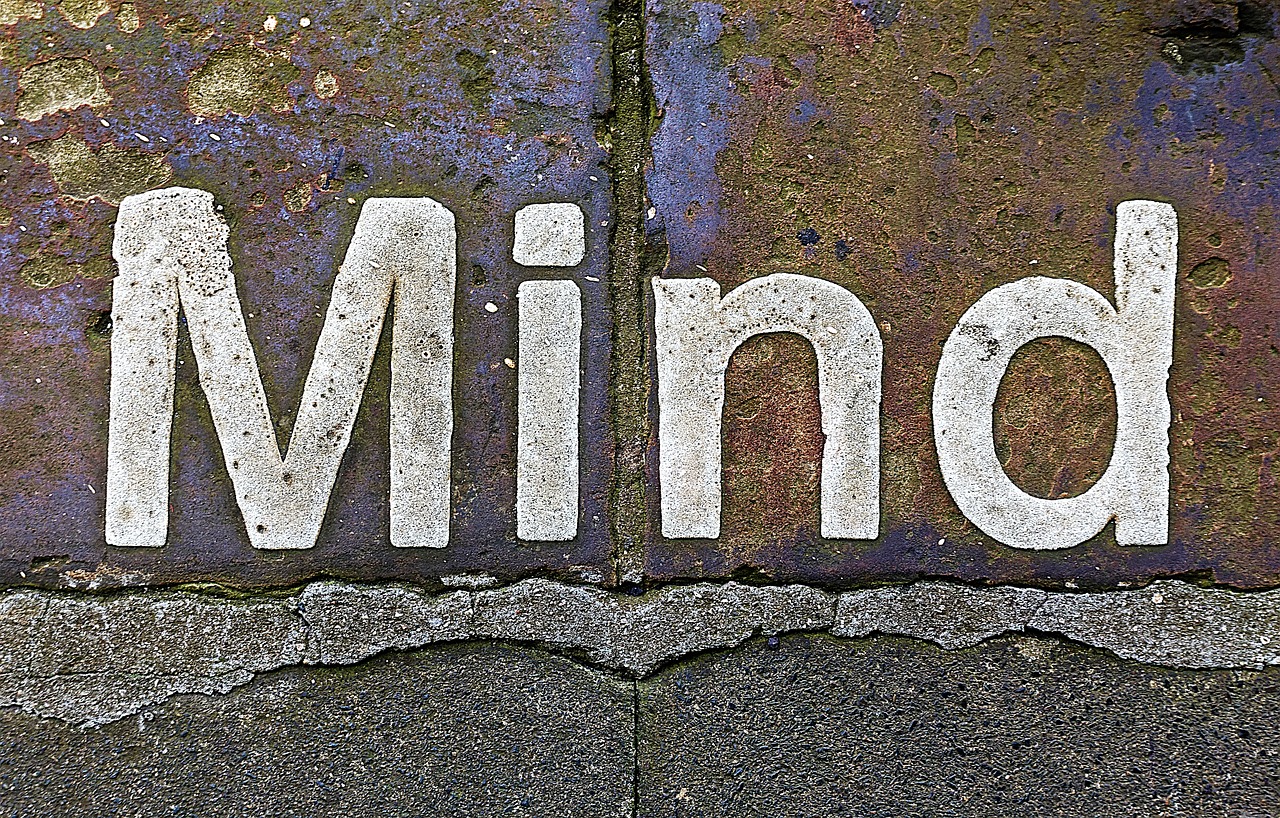
Implications for Reality
The interplay between consciousness and reality opens up a treasure trove of questions that challenge our understanding of existence itself. Imagine consciousness as a lens through which we view the world; it not only colors our perceptions but also shapes our interactions and decisions. This relationship is not just philosophical; it has profound implications for how we perceive our own agency and the fabric of reality around us. For instance, when we contemplate the nature of free will, we must ask ourselves: are our choices truly our own, or are they merely the byproducts of a complex interplay of biological processes and environmental stimuli?
Moreover, the concept of perception plays a crucial role in this discussion. Each individual's consciousness acts as a unique filter, influencing how we interpret events and experiences. This leads to the idea that reality is not a singular experience but rather a tapestry woven from countless threads of subjective perceptions. When we consider that two people can witness the same event yet recall it in entirely different ways, we start to see the implications of consciousness on our understanding of truth and reality.
To illustrate this further, let's consider the following table that summarizes some key implications of consciousness on reality:
| Aspect | Implication |
|---|---|
| Free Will | Challenges the notion of autonomy; questions whether decisions are conscious choices or predetermined. |
| Perception | Highlights the subjective nature of reality; suggests that our experiences are shaped by individual consciousness. |
| Existence | Invites deeper exploration into what it means to be; raises questions about the nature of reality itself. |
As we delve deeper into these implications, we cannot ignore the question of free will. If consciousness is merely a byproduct of neural processes, to what extent are we truly making choices? This dilemma not only affects our understanding of personal responsibility but also impacts societal structures, ethics, and law. The very essence of what it means to be human is intertwined with these questions.
Additionally, the way consciousness shapes our perception can lead to significant variations in how we experience reality. For example, consider a situation where a person faces a stressful event. One individual may perceive it as a challenge and rise to the occasion, while another may view it as an insurmountable obstacle. These differing perceptions can lead to vastly different outcomes, demonstrating that reality is not just what happens to us, but how we interpret those happenings through our conscious awareness.
In conclusion, the implications of consciousness for reality are vast and complex. They challenge us to reconsider our assumptions about free will, perception, and existence. As we continue to explore these intricate connections, we may find that understanding consciousness is not just an academic pursuit but a vital part of understanding what it means to live and experience reality.
- What is the relationship between consciousness and free will?
The relationship is complex; consciousness may influence our decisions, but the extent to which we have free will is debated among philosophers and scientists.
- How does perception shape our reality?
Perception acts as a filter through which we interpret experiences, meaning that two people can perceive the same event differently, leading to varied realities.
- Can consciousness exist without a physical body?
This question is central to debates in philosophy, with some arguing for dualism (mind and body are separate) and others for materialism (consciousness arises from physical processes).

Free Will and Conscious Choice
The concept of free will has long been a hot topic in discussions about consciousness and reality. It raises profound questions about whether we genuinely have the ability to make choices or if our decisions are pre-determined by a complex web of biological, psychological, and environmental factors. Imagine standing at a crossroads, with each path representing a different choice. Do you feel empowered to choose your direction, or do you sense that the choice has already been made for you? This metaphor captures the essence of the debate surrounding free will and conscious choice.
At the heart of this discussion lies the tension between determinism—the idea that every event, including human actions, is determined by preceding events in accordance with the laws of nature—and the belief that individuals can exercise control over their actions. If we accept that our thoughts and decisions arise from neural processes in the brain, how do we reconcile this with our intuitive sense of agency? The implications of this inquiry are staggering, as they touch upon our understanding of morality, accountability, and the very fabric of human experience.
Many argue that if free will is an illusion, then our perception of choice becomes a mere byproduct of consciousness, leading to questions about the nature of responsibility. How can we hold individuals accountable for their actions if those actions were predetermined? This dilemma invites a deeper exploration into the mechanisms of decision-making. Neuroscience has provided insights into how our brains process information and arrive at decisions, often before we are consciously aware of them. For instance, studies have shown that brain activity can predict a person's choice several seconds before they consciously make it, suggesting that our sense of free will may be an afterthought.
To further understand this intricate relationship, consider the following table that summarizes key perspectives on free will:
| Perspective | Definition |
|---|---|
| Determinism | The belief that all events, including human actions, are determined by preceding events and natural laws. |
| Libertarianism | The view that humans have free will and that our choices are not predetermined. |
| Compatibilism | The belief that free will and determinism are not mutually exclusive and can coexist. |
As we navigate this complex landscape, it's essential to recognize that our perception of free will may also be influenced by cultural and societal factors. For example, in some cultures, the emphasis on individualism fosters a strong belief in personal agency, while collectivist cultures may prioritize community and shared decision-making. This cultural lens can significantly shape how we interpret our choices and their consequences.
Ultimately, the relationship between free will and conscious choice invites us to reflect on our existence. Are we the authors of our own stories, or are we simply characters in a narrative written by the forces of nature? This question may never be definitively answered, but it encourages a deeper understanding of what it means to be human. As we continue to explore the interplay between consciousness and reality, one thing remains clear: our perceptions, choices, and the very essence of our being are intricately woven into the fabric of existence.
- What is free will? Free will is the ability to make choices that are not determined by prior causes or divine intervention.
- Is free will an illusion? Some argue that free will is an illusion created by complex brain processes, while others maintain that individuals can exercise genuine choice.
- How does consciousness affect decision-making? Consciousness influences how we perceive choices and can shape our decision-making processes, but neuroscience suggests that many decisions occur subconsciously.
- Can free will and determinism coexist? Compatibilism is a philosophical stance that suggests free will and determinism can coexist, allowing for personal agency within a deterministic framework.
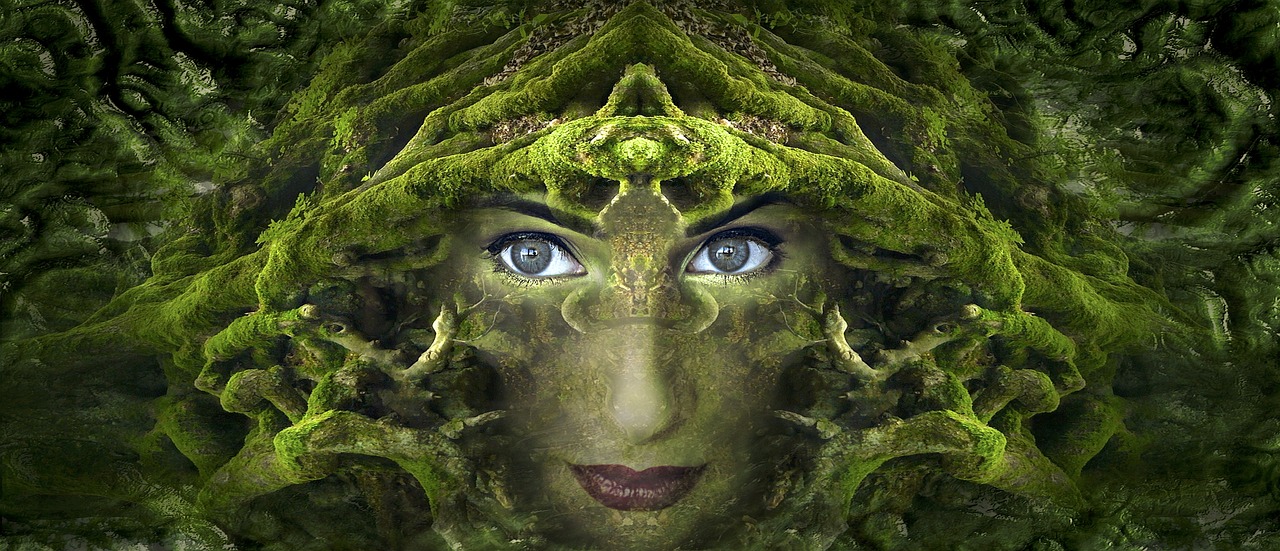
Perception and Reality
When we dive into the relationship between perception and reality, we uncover a fascinating web of connections that shape our everyday experiences. Have you ever wondered why two people can witness the same event but describe it in completely different ways? This phenomenon can be attributed to the unique filters of our consciousness, which are influenced by our personal experiences, beliefs, and emotions. Essentially, our perception acts as a lens through which we interpret the world around us, and this lens can alter how we understand reality.
Consider this: the world is full of stimuli—sounds, sights, smells, and sensations—that bombard our senses every moment. However, we don't experience all of these inputs equally. Instead, our brain prioritizes certain information based on what it deems important or relevant. This selective attention can lead to a distorted view of reality. For instance, when you're in a crowded room, you might focus solely on a friend's voice while tuning out the background chatter. This selective perception can create a reality that is vastly different from someone else's experience in the same environment.
Moreover, our cognitive biases play a significant role in shaping our perceptions. These biases can lead us to favor information that confirms our existing beliefs while dismissing evidence that contradicts them. This is often referred to as the confirmation bias, and it can create echo chambers in our minds, reinforcing a skewed understanding of reality. For example, if you believe that a particular political party is always right, you might only seek out news that supports that view, ignoring any opposing perspectives.
To illustrate this further, let's consider a simple table that outlines some common cognitive biases and their effects on perception:
| Cognitive Bias | Description | Effect on Perception |
|---|---|---|
| Confirmation Bias | The tendency to search for, interpret, and remember information that confirms one’s preexisting beliefs. | Leads to a skewed understanding of reality by ignoring contradictory evidence. |
| Anchoring Bias | The reliance on the first piece of information encountered (the "anchor") when making decisions. | Can distort judgment and perception based on initial impressions. |
| Availability Heuristic | The tendency to overestimate the importance of information that is readily available or recent. | May result in an exaggerated perception of risk or frequency. |
This interplay between perception and reality raises profound questions about the nature of existence itself. If our perceptions can be so easily manipulated, what does that say about the reality we experience? Is there an objective reality that exists independently of our perceptions, or is reality merely a construct of our consciousness? Philosophers and scientists alike grapple with these questions, suggesting that the answers may be more complex than we can imagine.
Ultimately, our perception shapes not only how we view the world but also how we interact with it. By understanding the mechanisms behind our perceptions, we can begin to navigate our reality with greater awareness. This awareness allows us to challenge our biases, broaden our perspectives, and foster a more comprehensive understanding of the world around us. So, the next time you find yourself in a disagreement about what is "real," remember: reality is often a tapestry woven from the threads of individual perceptions.
- What is the difference between perception and reality?
Perception refers to how we interpret and understand the world through our senses, while reality is the objective state of things as they exist, independent of our perceptions. - Can our perceptions change over time?
Yes, our perceptions can evolve based on new experiences, information, and shifts in our beliefs or emotions. - How do cognitive biases affect our perception?
Cognitive biases can lead us to interpret information in a way that confirms our existing beliefs, potentially distorting our understanding of reality. - Is there an objective reality?
This is a complex philosophical question, but many argue that while there may be an objective reality, our perceptions of it are inherently subjective.
Frequently Asked Questions
- What is consciousness?
Consciousness is often described as the state of being aware of and able to think about one's own existence, thoughts, and surroundings. It's like the spotlight shining on our thoughts and perceptions, allowing us to engage with the world around us.
- How does consciousness relate to reality?
The relationship between consciousness and reality is a complex one. Some theories suggest that consciousness shapes our perception of reality, acting as a filter through which we experience life. Others argue that reality exists independently of our awareness, but our understanding of it is inherently tied to our conscious experiences.
- What are the main philosophical perspectives on consciousness?
There are several philosophical perspectives on consciousness, including dualism, which posits that mind and body are separate; materialism, which argues that consciousness arises from physical processes; and panpsychism, which suggests that consciousness is a fundamental aspect of all matter. Each of these viewpoints offers unique insights into how we understand consciousness and its role in reality.
- What role does neuroscience play in understanding consciousness?
Neuroscience plays a crucial role in exploring consciousness by examining how brain activity correlates with conscious experiences. Through various studies, researchers aim to uncover the neural mechanisms behind consciousness, providing valuable data that helps bridge the gap between subjective experiences and objective reality.
- Can consciousness influence physical reality?
This is a hotly debated topic! Some theories, particularly those related to quantum mechanics, suggest that consciousness might play a role in shaping physical reality. While empirical evidence is still being explored, the idea that our awareness could influence the fundamental nature of reality is both fascinating and provocative.
- What implications does consciousness have for free will?
The interplay between consciousness and free will raises significant questions about our autonomy. If consciousness shapes our decisions, it challenges the notion that we are entirely in control of our actions. This leads to deeper inquiries about the nature of choice and the extent to which we are responsible for our decisions.
- How does perception affect our understanding of reality?
Perception is a key player in how we interpret reality. Our conscious experiences filter and shape our understanding, influencing how we interact with the world. This means that two people can experience the same event but perceive it differently based on their consciousness, highlighting the subjective nature of reality.








